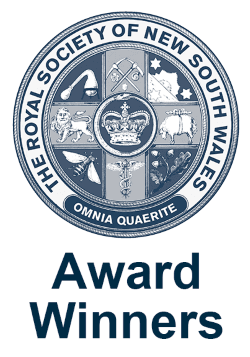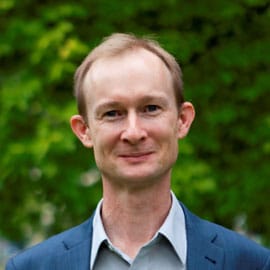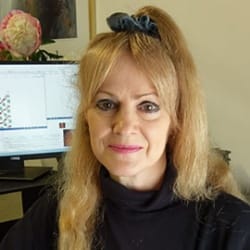
 The Royal Society of New South Wales was delighted to learn on 3 July that two of its Fellows, Professor Gary Froyland FRSN FAA, from the School of Mathematics and Statistics at UNSW Sydney, and Professor Catherine Stampfl FRSN FAA, from the School of Physics at the University of Sydney, have been awarded Australian Research Council Laureate Fellowships for 2023.
The Royal Society of New South Wales was delighted to learn on 3 July that two of its Fellows, Professor Gary Froyland FRSN FAA, from the School of Mathematics and Statistics at UNSW Sydney, and Professor Catherine Stampfl FRSN FAA, from the School of Physics at the University of Sydney, have been awarded Australian Research Council Laureate Fellowships for 2023.
 In his project, titled ‘Breakthrough mathematics for dynamical systems and data’, Professor Froyland aims to create a step change in the mathematics we use to learn actionable information from dynamical systems and dynamical data. Using a ground-breaking, operator-theoretic approach to analyse high dimensional systems and spatiotemporal data, this project expects to generate new knowledge in the modelling of complex systems and new pathways for unsupervised machine learning. By developing new mathematical tools and practical algorithms this project will enable us to better discover hidden patterns in complex spatiotemporal data, providing social and economic benefits by improving the characterisation and prediction of key Australian climate drivers, which are connected to droughts, heatwaves, bushfires, and major flooding. Professor Froyland’s research will also shed new light on social processes such as opinion spreading and the formation of consensus.
In his project, titled ‘Breakthrough mathematics for dynamical systems and data’, Professor Froyland aims to create a step change in the mathematics we use to learn actionable information from dynamical systems and dynamical data. Using a ground-breaking, operator-theoretic approach to analyse high dimensional systems and spatiotemporal data, this project expects to generate new knowledge in the modelling of complex systems and new pathways for unsupervised machine learning. By developing new mathematical tools and practical algorithms this project will enable us to better discover hidden patterns in complex spatiotemporal data, providing social and economic benefits by improving the characterisation and prediction of key Australian climate drivers, which are connected to droughts, heatwaves, bushfires, and major flooding. Professor Froyland’s research will also shed new light on social processes such as opinion spreading and the formation of consensus.
 In being awarded the 2023 Georgina Sweet Australian Laureate Fellowship, Professor Stampfl will have significant ambassadorial and mentoring roles, supported by additional funding, in addition to her research project. This project, titled ‘Computational design of frontier materials for sustainable technologies’, will focus on new catalysts and advanced new materials that speed up carbon dioxide transformation and efficient ammonia production to manufacture sustainable fuels and chemicals and enable new technologies such as for renewable energy. This research will develop a computational platform that uses powerful supercomputers, accurate simulations of atoms, and artificial intelligence to overcome challenges in rapidly identifying and testing new materials. The breakthrough theoretical and computational methods expected to be delivered will advance Australia’s renewable energy and emerging quantum technology industries and inform the development of sustainable manufacturing.
In being awarded the 2023 Georgina Sweet Australian Laureate Fellowship, Professor Stampfl will have significant ambassadorial and mentoring roles, supported by additional funding, in addition to her research project. This project, titled ‘Computational design of frontier materials for sustainable technologies’, will focus on new catalysts and advanced new materials that speed up carbon dioxide transformation and efficient ammonia production to manufacture sustainable fuels and chemicals and enable new technologies such as for renewable energy. This research will develop a computational platform that uses powerful supercomputers, accurate simulations of atoms, and artificial intelligence to overcome challenges in rapidly identifying and testing new materials. The breakthrough theoretical and computational methods expected to be delivered will advance Australia’s renewable energy and emerging quantum technology industries and inform the development of sustainable manufacturing.
Her ambassadorial and mentoring roles will focus on two activities: supporting female students from regional and remote Australia to study science at university and supporting early career researchers who are parents in their research. Further information about these developmental activities can be found on the ARC website.
The Council of the Royal Society of New South Wales extends its warmest congratulations to Professor Stampfl and Professor Froyland on this recognition of their outstanding scientific achievements.